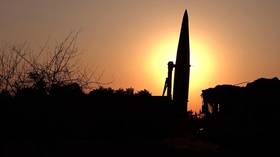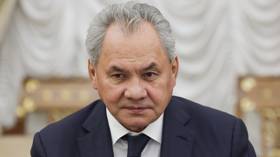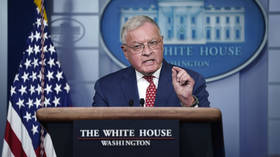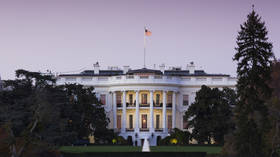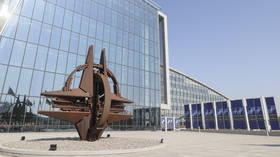US sticking to INF Treaty withdrawal, to be filed in due course – Bolton after Moscow visit
Washington is determined to withdraw from the INF arms control treaty no matter what, but has not done so yet, US national security adviser John Bolton said after meetings with the Russian leadership in Moscow.
“There’s a new strategic reality out there,” Bolton told reporters, describing the Intermediate-Range Nuclear Forces (INF) Treaty as a “bilateral treaty in a multipolar ballistic missile world,” that does not apply to countries like China, Iran or North Korea.
The US estimates that anywhere from a third to a half of all Chinese missile capability would be in violation of the INF, were Beijing a party to the treaty, Bolton added.
He argued that, with Russia in violation and other countries not bound by the INF, only the US remains limited by the treaty.
“On the conceptual possibility on universalizing the treaty, that’s something we’ve thought of as far back as 2004,” Bolton said. There were attempts to do so, but “they all failed.”
Withdraw first, ask later: He nuked Russia-US relations, now Bolton arrives in Moscow to talk https://t.co/4upb1WrMxqpic.twitter.com/zid5z7H2Da
— RT (@RT_com) October 22, 2018
Bolton was scheduled to fly to Moscow on September 11, 2001, to give notice that the US was withdrawing from the anti-ballistic missile (ABM) treaty, he reminded reporters. At the time, he joked, all the media would call it “the cornerstone of international strategic stability.” Yet there was no collapse of international stability, he argued.
“It was not true then, and it will not be true now, with this treaty,” he said.
As an example just how glibly Bolton & Trump tear up predecessors' work without any idea how to replace it, he says when he was ending ABM treaty he would joke reporters must have one key to type "the cornerstone of international security". "It wasn't true then & won't be now" pic.twitter.com/nZaRn4RRWb
— Alec Luhn (@ASLuhn) October 23, 2018
He maintained that Russia was in violation of the treaty going back to missile tests in 2008, and that the US has struggled to resolve the issue since 2013, without success. Moscow has rejected US accusations, saying instead that US missile defense systems deployed in Poland and Romania were in violation. Those systems would’ve been banned under the ABM treaty.
Commenting on a statement by the government in Beijing that China wants the US to remain in the INF, Bolton said, “If I were living in Beijing, I would probably want the same thing. But I’m not.”
Earlier in the day, Russian President Vladimir Putin asked Bolton if the eagle on the US seal had eaten all the olives from the branches it was holding in one talon, and the arrows it was holding in the other were all that was left.
“I didn’t bring any more olives,” Bolton replied.
WATCH MORE:
Think your friends would be interested? Share this story!


